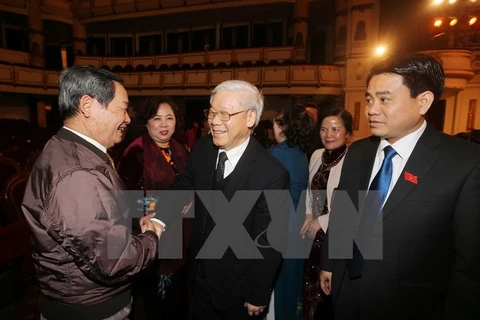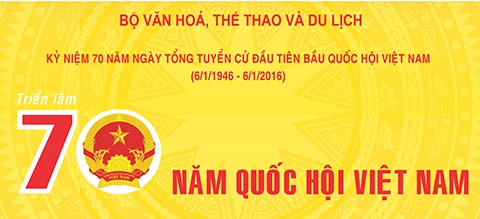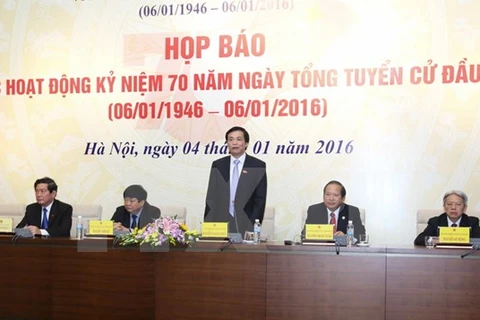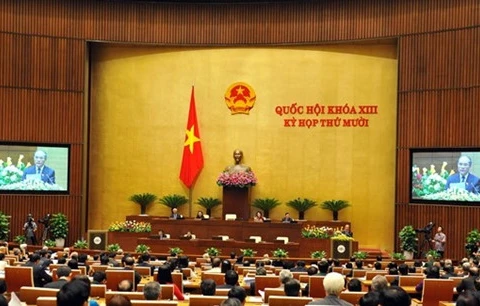HCM City (VNA) – Southerners who experienced the first general election in Vietnam seven decades ago still have vivid memories of the historic event, which took place amid the enemy’s fierce sabotage in the south.
In her memoirs, Ngo Thi Hue – a deputy to the first-tenure National Assembly – wrote that the Bac Lieu provincial Party Committee was notified that the general election would be held on January 6, 1946, when French invaders already occupied almost all southern provinces and were about to flock to Bac Lieu.
When the first general election took place, Phan Minh Tanh – former Vice Secretary of the Ho Chi Minh City Party Committee – just turned 17 and was eligible to vote in Bac Lieu.
“At first, people like me did not know what a National Assembly election was. After hearing explanations, we came to understand that the election was to select representatives of people and exercise the right to democracy”, he recalled.
He added, “That was the first time people had practiced their rights, they voted for the sake of independence – the sacred right that they had not heard about during their life.”
Although former Deputy Governor of the State Bank of Vietnam Pham Hoc Lam was just 16 years old then and not eligible to cast the ballot, he still remembers the event very clearly as he was assigned to act as the electoral council’s secretary in a commune in Bac Lieu’s Ngoc Hien district.
People at that time were very excited and almost all of them eagerly came to polling stations, he said.
In Bac Lieu, there were six or seven candidates for the first National Assembly deputies, and the three most prestigious persons (a teacher, a religious representative, and a revolutionary) were elected, Lam said, adding that the result demonstrated the democracy as the elected came from different social strata.
In many other southern areas, people also braved danger caused by France’s occupation and suppression to cast their votes.
For their parts, the elected deputies of the south could not imagine how hard their journey to attend the first National Assembly sitting in Hanoi was.
Ngo Thi Hue, one of the southern region’s three female deputies to the first National Assembly, said it took them over six months to travel by sea to Hanoi.
“Thanks to the help of the patriotic Vietnamese expatriates’ association, I disguised as a Chinese national to go from Bangkok (Thailand) through Hainan Island and Beihai to Dongxing (China), which is near Mong Cai (Vietnam’s northern province of Quang Ninh)”, she recounted.
Hue added it was until October 1946, when the second sitting of the first National Assembly was about to commence, the southern deputies, who had been summoned to attend the first sitting, just arrived in Hanoi.
The high resolve and enthusiasm of the deputies like Ngo Thi Hue led to the success of the first-tenure National Assembly, which went down into history as the first parliament of the independent Vietnam and a landmark in the democratic institution of the newly-founded Democratic Republic of Vietnam.-VNA

























